Gauss Meter Price
How much does the Gauss meter price?
At ADK Instruments, we provide a range of noise-measuring instruments designed to meet the varied needs of industrial enterprises. Our Gauss meter is one such device that is crafted with precision and accuracy in mind. It is capable of accurately measuring magnetic field strength and providing accurate readings.
Our Gauss meter price varies depending on its features and capabilities, its model and features as well as the quantity ordered.
Our Gauss meter is designed with the most advanced technology to ensure accuracy and reliability in measuring magnetic field strength. It can provide readings up to 10 Telsa and is equipped with an auto-range feature to ensure high accuracy. It also has an LCD for direct reading of results as well as a USB connection for data transfer.
What are the Factors Affecting Gauss meter price?
One of the most important features to consider when purchasing a Gauss meter is its price. As with most pieces of industrial measurement tools, several factors can affect the Gauss meter price.
The size and type of instrument and its range of capabilities are among the biggest considerations that will affect the price. For example, larger instruments that can measure high levels of magnetic fields will cost more than smaller, basic models that are designed for low-level fields.
The sophistication of the instrument is another factor that can affect the price of a Gauss meter. A simplified GAUSS meter with fewer features may be suitable for basic measurements, but it may be inadequate for complicated measurements. Professional grade GAUSS meters, on the other hand, come with a wide range of features and are more expensive.
The accuracy of the instrument is also an important factor to consider when determining cost. Higher-end models have higher accuracy levels compared to simpler instruments and so they tend to be priced higher as well.
Why Does the Gauss meter price vary?
When it comes to measuring noise, a Gauss meter is an essential tool. A Gauss meter measures the total strength of magnetic fields and can be used for many applications, such as measuring the magnetic field strength around electric motors, assessing safety in transformer rooms, or determining whether there are high levels of electromagnetic radiation in factories. The price range of Gauss meters varies drastically due to a variety of factors such as accuracy, features, ease of use, and size.
More accurate Gauss meters will typically be more expensive since they require more precision in their manufacture than less accurate ones. The number of features included can also affect the price. For example, some gauges may include additional functionality such as data logging or a USB connection to allow for transferring data directly to a computer. Additionally, the size of the device can play an important role in its cost; smaller and lighter models will typically be more expensive than heavier and bulkier ones.
The ease of use is also an important factor that affects the price of Gauss meters. Some models may include additional features such as intuitive menus or simplified interfaces that make it easier to get the readings you need quickly and accurately. For those who are working in safety-critical environments or with sensitive equipment, a Gauss meter with advanced features can be worth the extra cost.
What is a Gauss meter used to measure?
A Gauss meter, also known as a magnetometer, is a specialized instrument used to measure the strength and direction of magnetic fields. The unit of measurement for magnetic fields is the Gauss, named after the German mathematician and physicist Carl Friedrich Gauss. In the context of a digital Gauss meter, the instrument utilizes advanced digital technology to provide accurate, reliable, and rapid measurements. These devices are often used in sectors such as manufacturing, engineering, and research, where the monitoring and control of magnetic fields are essential. Furthermore, a digital Gauss meter can assist in the identification and diagnosis of issues in electronic and magnetic devices, contributing significantly to quality control processes.
What are the different types of Gauss meter?
Gauss meters can be categorized into two primary types: analog and digital. Analog Gauss meters, the traditional form, utilize a needle and dial to indicate magnetic field strength, with the needle's movement corresponding to field fluctuations. Despite their simplicity, they tend to lack precision and speed compared to their digital counterparts.
On the other hand, digital Gauss meters, which the industry heavily relies on due to their accuracy and repeatability, give numerical readings of magnetic field strength, typically on a liquid-crystal display (LCD). These models, often handheld, are further divided into single-axis and three-axis designs. Single-axis meters measure magnetic fields in one direction, requiring the user to manually rotate the device for a complete measurement. Meanwhile, three-axis meters simultaneously measure magnetic fields in three dimensions, providing a comprehensive overview of the magnetic environment.
Additionally, some digital Gauss meters come with advanced features such as data logging, USB connectivity for data transfer, battery-saving auto power-off, and backlit screens for enhanced visibility. Regardless of the type, a Gauss meter's utility in assessing magnetic fields is invaluable in various industries, including engineering, manufacturing, and scientific research.
What is the difference between a flux meter and a Gauss meter?
A flux meter and a Gauss meter, both critical tools in the field of electromagnetism, serve different purposes and functions based on distinctive principles. A Gauss meter, as previously described, is a device employed to measure the strength and direction of a magnetic field. It is instrumental in applications that necessitate precise and immediate readings of magnetic fields, such as quality control in manufacturing or scientific research.
Conversely, a flux meter is designed to measure the total magnetic flux passing through a given surface or coil. This tool operates based on Faraday's law of electromagnetic induction. According to this principle, the induced electromotive force (EMF) in a closed circuit is equal to the rate of change of magnetic flux through the circuit. It is crucial for applications that involve measuring the total magnetic flux, like transformer design or magnetic circuit analysis.
In essence, while a Gauss meter provides an instantaneous measurement of the magnetic field's strength, a flux meter calculates the integrated magnetic field over a surface area or coil, thus giving a comprehensive measure of the total magnetic flux. These distinctions make each device uniquely suited to specific applications within engineering and scientific domains.
 ×
×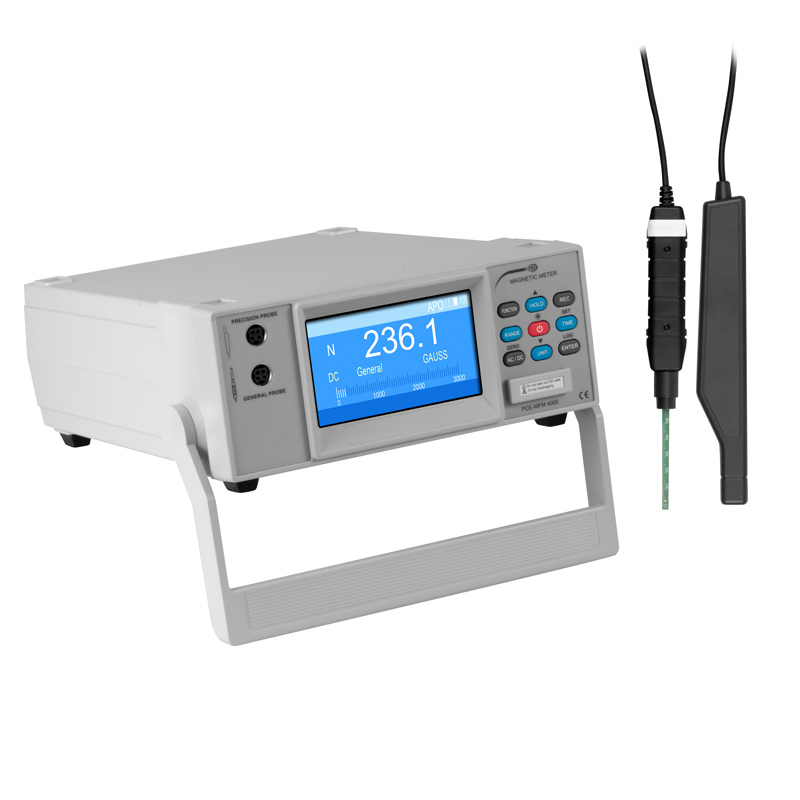
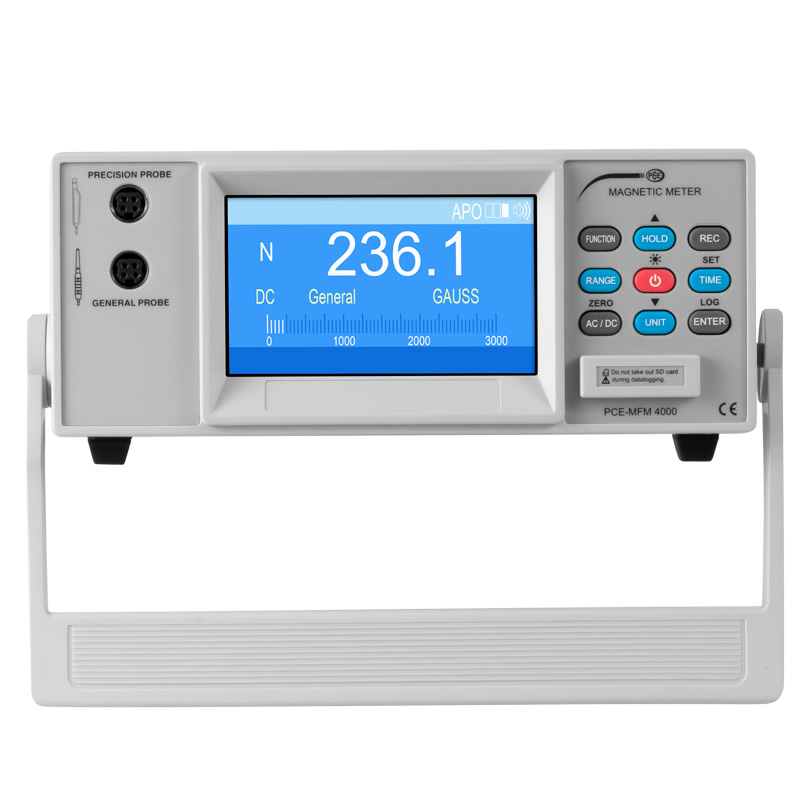
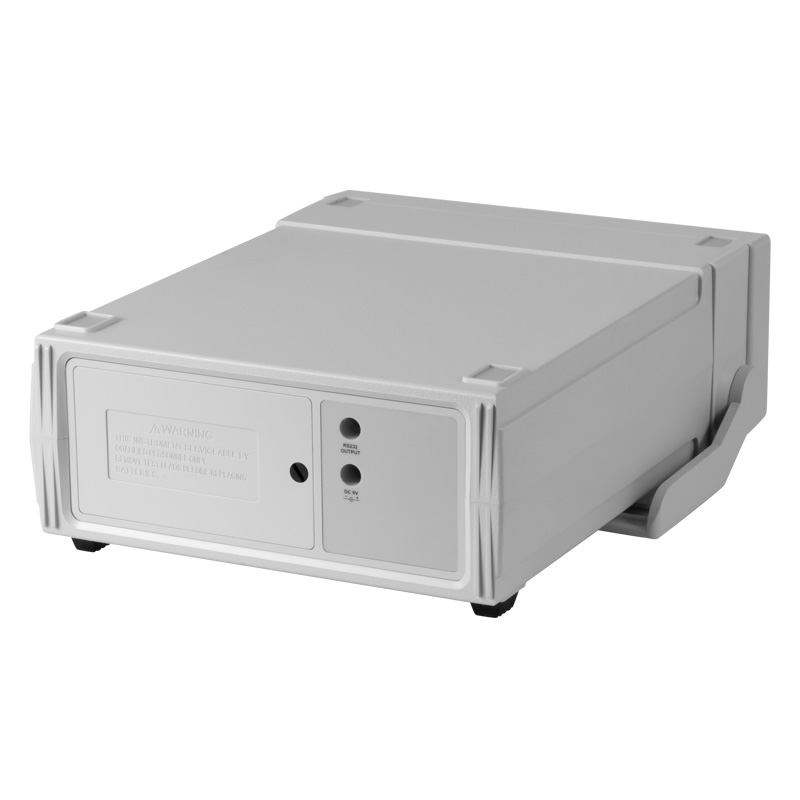
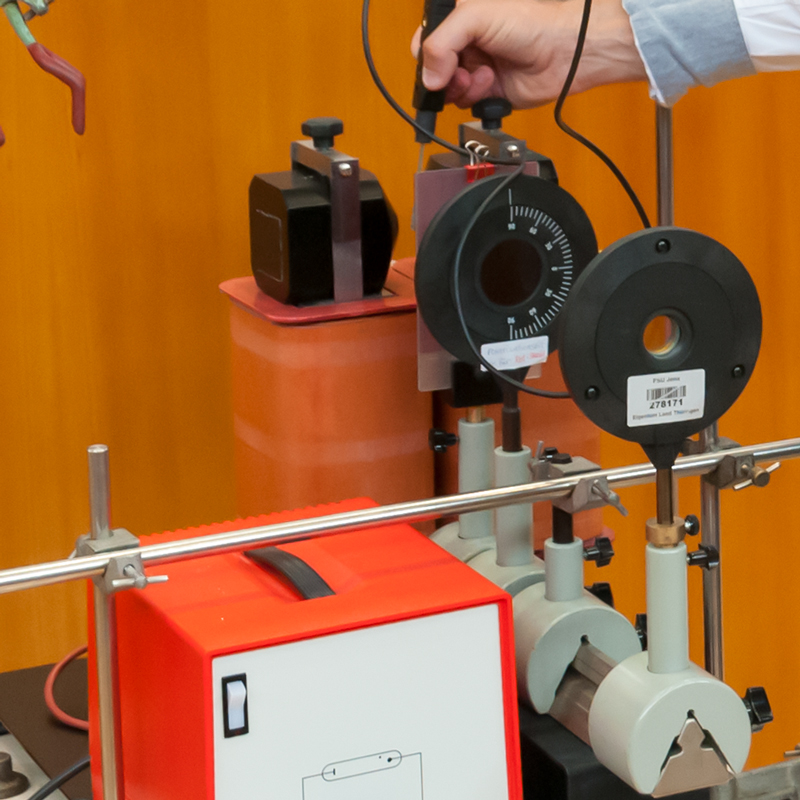
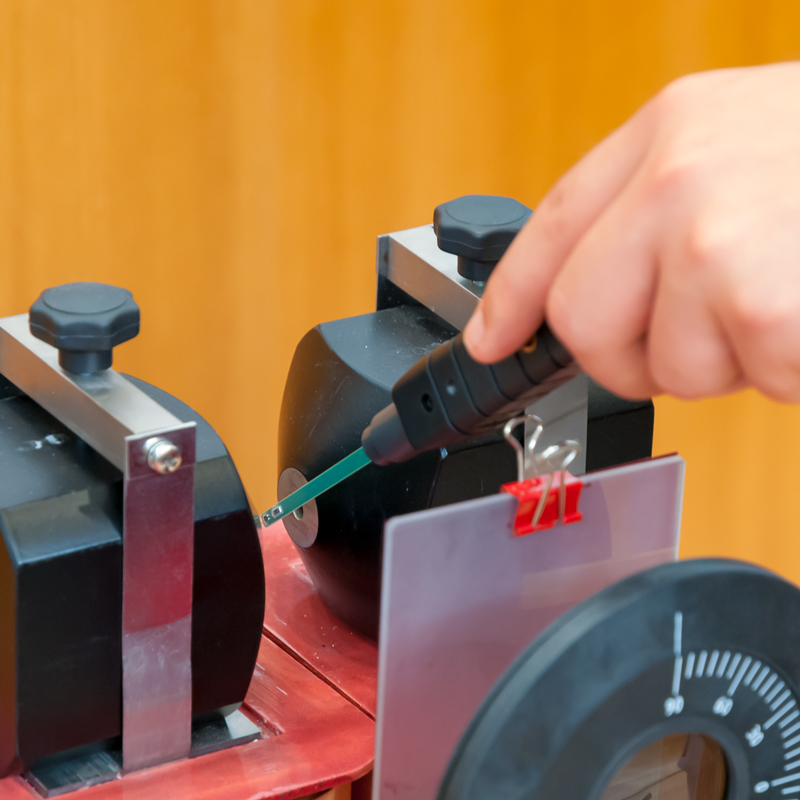
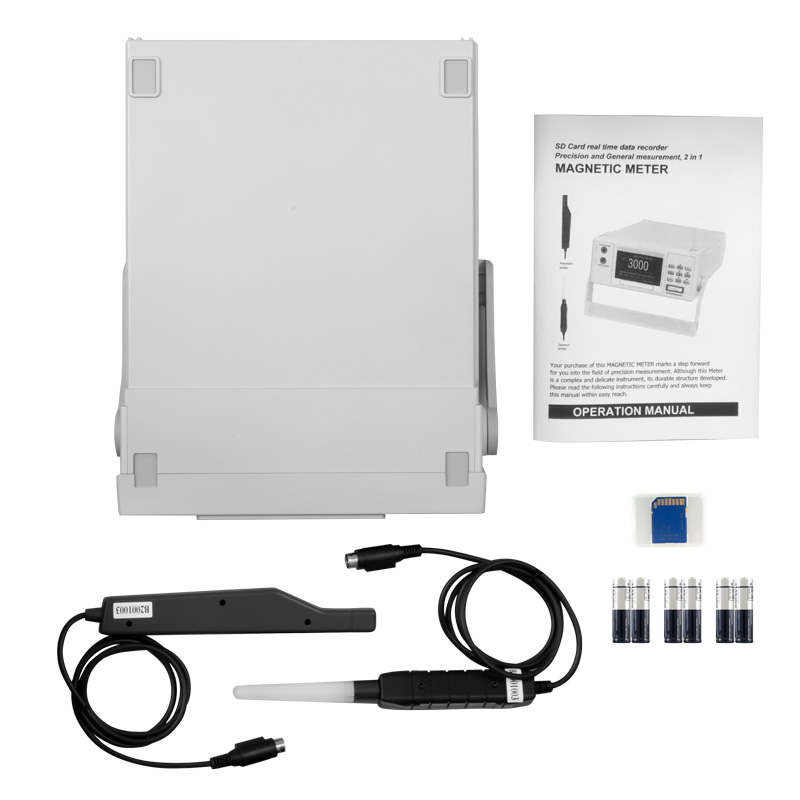
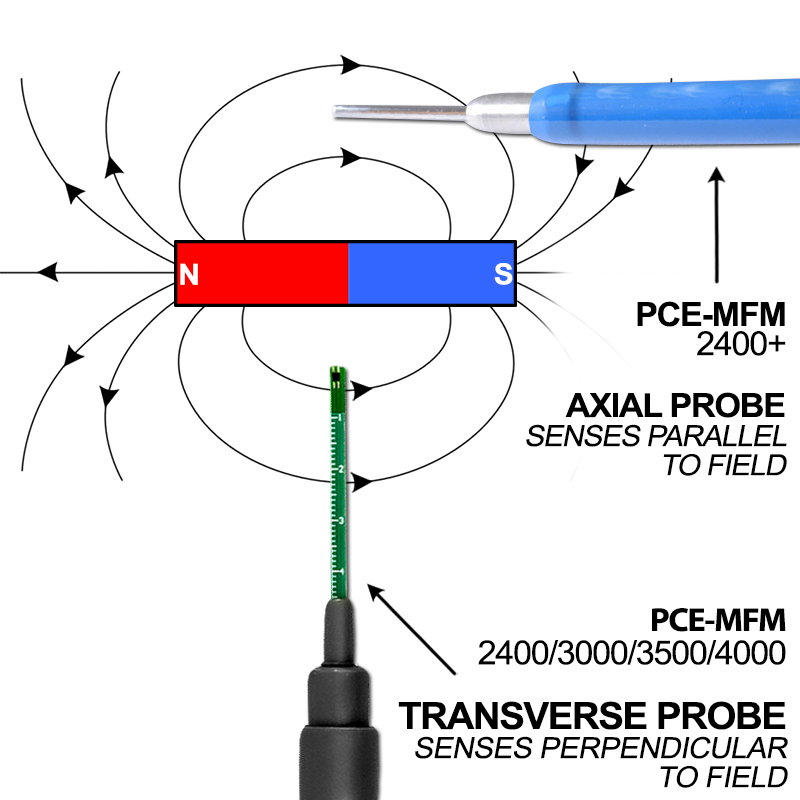
 Standard 9-15 Days Delivery | Once received to our Hub
Standard 9-15 Days Delivery | Once received to our Hub

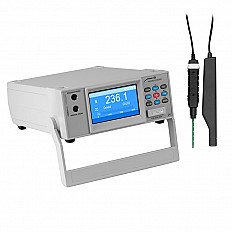
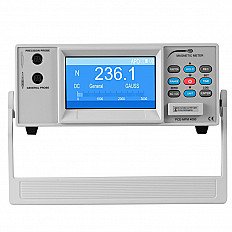
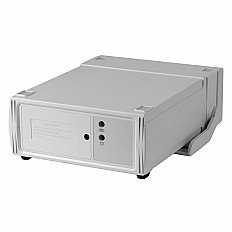
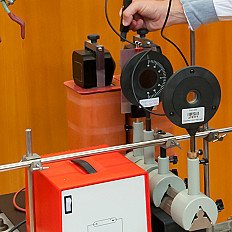
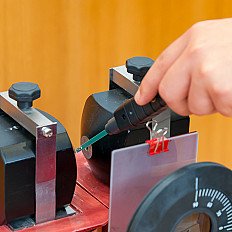
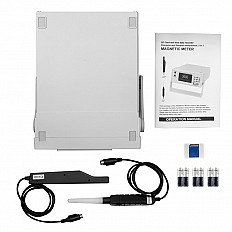
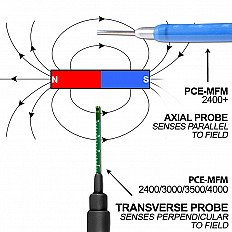
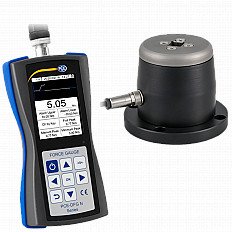
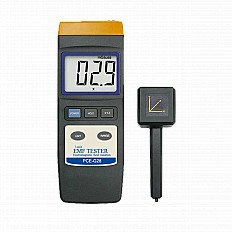
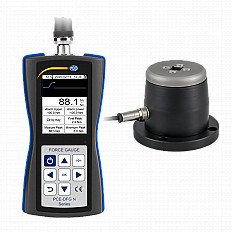
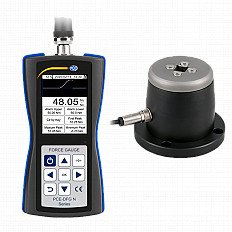










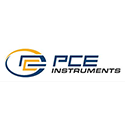


.png)

